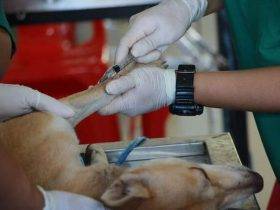Dog Bite Law in San Diego
Judging by my internet searches and conversations with neighbors, dog bites seem to be an unfortunate but common occurrence here in San Diego. As both a dog lover and someone concerned with legal rights, I wanted to take some time to explore and explain dog bite law in our area. In this comprehensive guide, I will cover the major aspects of this topic that anyone affected by a dog bite should understand. By the end, my hope is that readers have a solid grasp of their legal options as well as how to prevent future incidents. Let’s get started!
What is Considered a Dog Bite Under CA Law?
To start, it’s important to understand what legally constitutes a dog bite versus other types of injuries. Under the California civil code, a dog bite refers to any physical injury caused by the dog’s teeth or jaws. This includes puncture wounds, lacerations, bruising, etc. It does not matter if the contact was intentional, accidental, or provoked in some way – if the injury was directly caused by the dog’s mouth, it is considered a bite in the eyes of the law.
Other injuries like scratches from claws or being knocked over are not technically dog bites. However, owners can still be held responsible for all injuries caused by their pet’s behavior. The distinction matters primarily for insurance claims and legal statutes of limitations related directly to dog bites.
Who is Liable for Dog Bites in San Diego?
When it comes to assigning fault after a dog bite incident, liability usually falls on the dog’s owner. Under California civil code Section 3342, owners are considered strictly liable for any physical injuries or property damage caused by their pet’s behavior. This means an owner can be found responsible even if the dog has never bitten before and the bite seemed completely unprovoked.
There are some exceptions to strict liability in San Diego dog bite cases:
- Provocation: If the plaintiff (bitten individual) provoked or tormented the dog in some way, causing it to feel threatened and bite in self defense, the owner may not be 100% at fault. However, they still carry some liability if they failed to properly restrain or control their dog.
- Trespassing: If the injury occurred while the plaintiff was trespassing on the owner’s private property, this may reduce the owner’s liability. Signs clearly posted warning of a potentially dangerous dog help strengthen this defense.
- Vicious Propensity: To fully escape liability, an owner would need to prove they had no prior knowledge that their dog had any vicious or dangerous tendencies before the bite incident. This defense rarely works in practice though.
So in summary, if a dog you own or are responsible for bites someone in San Diego, you will likely be found legally liable absent clear provocation or trespassing by the injured party. Carrying homeowners or renters insurance that covers dog bites is highly recommended.
Filing a Dog Bite Claim or Lawsuit in San Diego
If you have been bitten by a dog, one of your first steps should be seeking medical attention as necessary. Once the situation is stabilized, you then have a few options for seeking compensation:
File a claim with the dog owner’s homeowners insurance: Having the name and contact info of the owner makes pursuing this avenue easier. Include medical bills and documentation of the incident. That is why having a great insurance plan for your dog is vital.
File a small claims court lawsuit: For claims under $10,000, this informal court is an accessible option. Filing fees are low but you’ll need evidence and to represent yourself.
Hire a personal injury attorney: For serious bites requiring extensive treatment, an attorney can help build a stronger negligence case and potentially recover costs beyond medical bills alone. They typically work on contingency.
Key details to gather include the date/time, location, your injuries, witness info, the dog’s description, and whether it was up to date on required vaccinations. The statute of limitations for dog bite claims in California is one year after the incident date, so take action within that window.
Understanding the Rules & Regs for Dogs in San Diego
When it comes to preventing dog bites through proper regulation, the city and county governments play an important role. Here are some of the key rules and regulations dog owners in San Diego must follow:
- All dogs over 4 months must be licensed annually through the city or county. This helps with identification if needed.
- Dogs must be vaccinated against rabies and owners must keep documentation of the vaccine up to date.
- Dogs cannot be unrestrained in public areas like parks, beaches or sidewalks unless in a designated off-leash area. They must be on a less than 6 foot leash at all times.
- Cities like San Diego, Chula Vista and others require dogs classified as “pit bulls” to be spayed/neutered and carry liability insurance.
- Dogs cannot be left unattended tied up outside stores or on balconies where they could bite a passerby.
- Neighborhoods may have additional HOA regulations on number of dogs allowed or barking issues.
- State laws require all dogs to be properly housed, fed, watered and receive veterinary care when sick.
Following jurisdiction-specific rules helps ensure a dog won’t accidentally injure someone through lack of oversight or control by their owner. Lack of compliance can lead to fines, impoundment, or liability in the event of harm.
Common Triggers and Prevention Tactics for Dog Bites
From talking to dog trainers and behaviorists locally, there are some common behaviors and scenarios they warn clientele about that tend to trigger dog bites:
- Approaching an unfamiliar dog too quickly or crowding their personal space
- Disturbing a dog that is sleeping, eating or caring for puppies
- Trying to take a toy, bone or high-value item from a dog
- Frustration over leash pressure or being restrained during play
- Pulling a dog’s tail, ears or fur
- Children under 6 years old who don’t understand reading dog body language properly yet.
Some prevention strategies include:
- Ask permission before petting any dogs you don’t know well
- Allow dogs to approach you at their own pace and stop if they lose interest
- Make eye contact but not direct staring which they perceive as threatening
- Keep small children and dogs separated with proper supervision
For your own pet dog, prevention starts with obedience training, bite inhibition training as a puppy, not leaving young kids alone with any breed unsupervised, and watching carefully around their food/toys. Spaying/neutering has also been shown to lessen aggression risks. Using a collar tag with contact info could also help identify a loose dog should it bite someone accidentally. With awareness and precaution, many dog bites are highly preventable.
Additional Protections Under the CA “Dangerous Dog” Statute
While strict liability focuses on individual dog bite incidents and compensation, California also has a “Dangerous Dog” statute (CA Food & Agriculture Code 31601) designed to protect public safety from dogs deemed a severe ongoing risk. It establishes protocols for designating a dog as dangerous based on multiple unprovoked bites or other menacing behavior.
Key aspects of this law include:
- Investigations and hearings by local Animal Control agencies to determine liability.
- Restrictions on maintenance, housing and movement of dogs determined to be dangerous without special precautions. This could include leashed walks only via muzzle.
- Owners of confirmed dangerous dogs must obtain special liability insurance.
- If a dangerous dog causes serious injury or death, the owner can be found guilty of a misdemeanor carrying maximum 1 year jail and/or $10,000 fine.
- In very extreme cases, Animal Control may confiscate and euthanize a dog deemed to pose imminent threat despite prevention attempts.
While strict liability focuses solely on individual incidents, this statute is aimed at enhanced oversight of high-risk dogs through their local jurisdiction as a preventive safety measure. Failure to comply can bring criminal prosecution along with any civil lawsuits connected to new damages.
Conclusion and Final Thoughts
I hope this comprehensive guide has helped shed light on dog bite law and regulations here in the San Diego area. Between understanding strict liability, timelines for claims, city statutes and prevention tactics, knowledge is key to exercising legal rights or taking proper precautions in the event of a bite. My goal has been to educate readers on this common yet sensitive topic. While unfortunate, most dog bites stem from normal canine behavior intersecting closely with human activity. With education, responsible pet ownership, and mutual respect between species, hopefully such incidents can continue trending downward locally. Please feel free to reach out or comment below if any part needs more clarification.





Leave a Reply